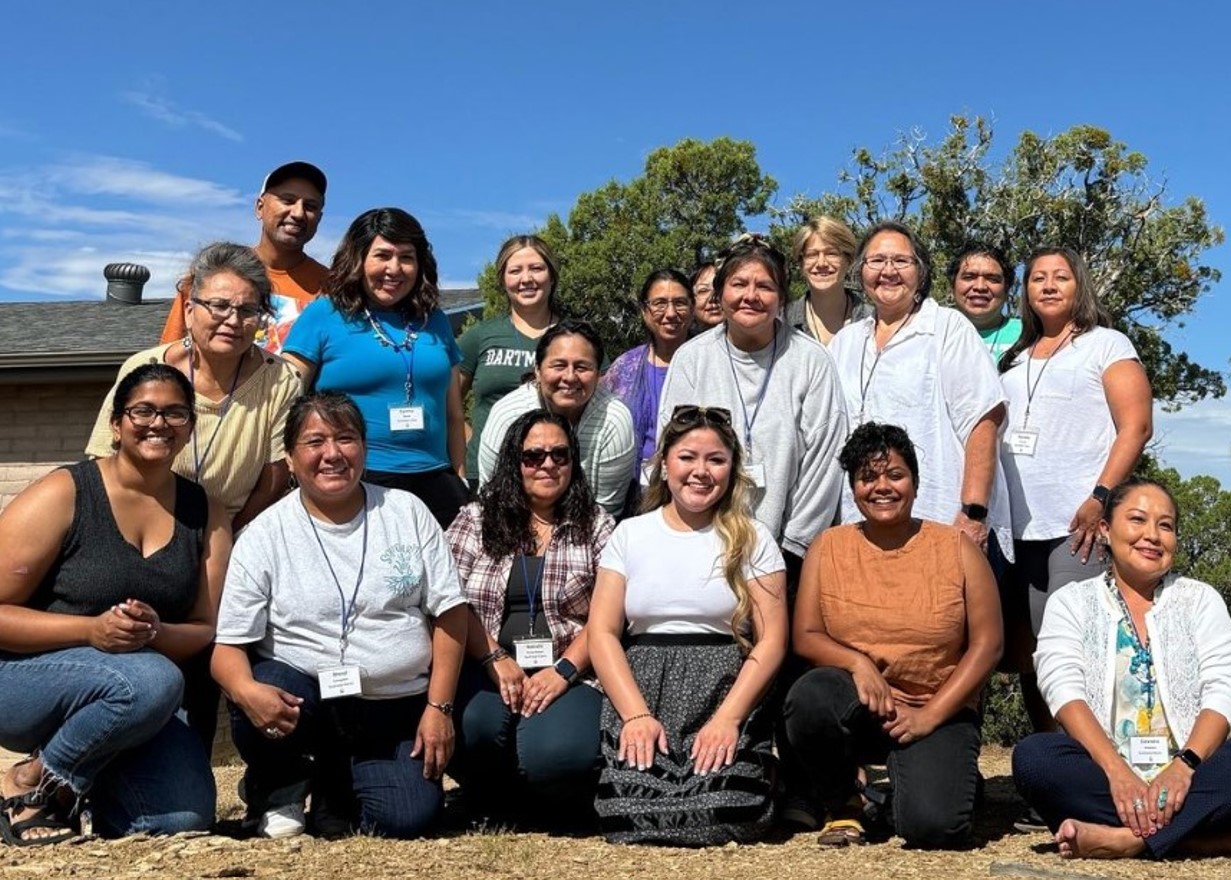
Global health has a complicated past and present, from colonial and imperial histories to erasures of Indigenous knowledge that influence the field today. The UCGHI Center for Health Workforce Equity or Health, Equity, Action, and Leadership (HEAL) Initiative recognizes the power of investing in the local capacity of healthcare workers serving the community they call home to improve health and reverse this painful legacy. HEAL focuses on training frontline healthcare workers dedicated to serving resource-denied communities, believing that global health equity requires investing in local health workers. A new HEAL program, the HEAL Southwest Leadership, launched in August 2024 and provides an 18-month fellowship led by and designed for Indigenous healthcare workers serving the Navajo Nation and other communities in the Southwestern United States.
“In my own Navajo population, a third of the reservation still doesn't have running water. Some people don't have electricity,” says Dr. Adriann Begay, Tábaahii (Edge of the Water clan), Navajo Nation Senior Officer for the HEAL Initiative, and past 2022 UC Global Health Day Closing Plenary Speaker. “Empowering people who are from this area to take care of the community and increasing a competent health workforce will help decrease disparities.”
In August, the inaugural HEAL Southwest Leadership program held a gathering for the cohort of eight nurses who work in three Indigenous-serving healthcare facilities in the communities of Gallup, Fort Defiance, and Zuni on the Navajo and Zuni Nations. The existing HEAL curriculum teaches health care equity based on the pillars of structural competency, advocacy, leadership, power and privilege, and well-being. The HEAL Southwest Leadership program brings in Indigenous experts who localize the curriculum by speaking on these pillars from a Navajo cultural lens. The workshops and seminars are designed and led by Indigenous HEAL alumni who will mentor the new cohort.
“We've mapped out 18 months of both community building and curriculum to really empower this group of nurses to be leaders and advocates in their communities, and stay in this work for the long term,” says Margaret Chell, program associate for the HEAL Southwest Leadership cohort. The new program tailors HEAL’s curriculum to empower Indigenous healthcare workers to advocate for themselves, their patients, and their communities.
“Because they're from the local community, these are the individuals that are going to stay,” says Dr. Begay. “For us native individuals, this is our home. This is our community, and these are our people, our family.”
The HEAL Southwest Leadership fellows serve their communities facing nursing shortages, structural barriers, healthcare disparities, and other hardships that can be overwhelming and discouraging. However, Dr. Begay believes that providing these workers with solidarity networks and global health training will give them the tools and resources they need to build sustainable careers committed to serving their local communities despite these challenges.
“My journey of being able to give back comes out of my own lived experience of having many people who empowered me,” says Dr. Begay. “This program is like a dream come true—that I can do this work and provide empowerment, provide support, provide advocacy for these individuals, so that they can become advocates for themselves, for their colleagues, and for their patients.”
